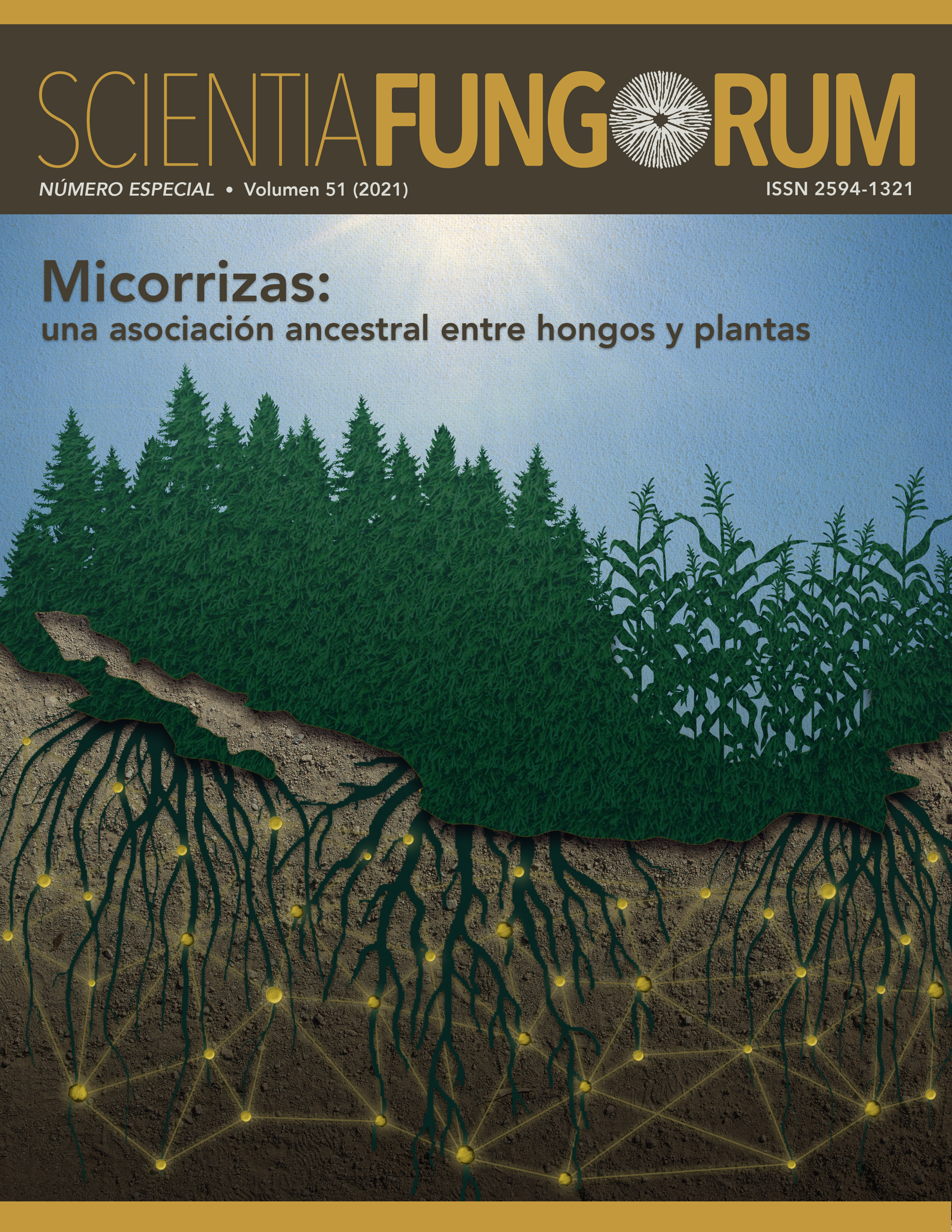Diversity of arbuscular mycorrhizal fungi in wheat monoculture in Michoacan, Mexico
DOI:
https://doi.org/10.33885/sf.2021.51.1369Abstract
Background: In Mexico, wheat serves as a staple grain. In 2019, wheat was planted in 526,449 ha of area, and 3,121,601 t of grain was produced. The agricultural practices, such as tillage, fertilization, and lack of crop rotation, have been shown to affect the community composition of arbuscular mycorrhizal fungi (AMF) in wheat.
Objetive: To determine the diversity and to taxonomically identify AMF in wheat monoculture handled with high doses of inorganic fertilizers.
Methods: The study was conducted in José Sixto Verduzco, Michoacán, Mexico. The soil samples were collected from the upper horizon (0-15 cm depth) of the winter wheat crops during March, 2018. The spores were isolated from 30 g samples and identified morphologically. The diversity was evaluated using the Shannon-Wiener index.
Results and Conclusions: Nine species were found, eight of them were identified at the species level: Claroideoglomus etunicatum, Diversispora spurca, Entrophospora infrequens, Funneliformis mosseae, Rhizophagus intraradices, Sclerocystis sinuosa, Septoglomus constrictum and Sieverdingia tortuosa. Funneliformis mosseae exhibited the highest relative abundance (50 %). The agricultural soil samples with wheat monoculture exhibited low AMF diversity (1.59) and high frequency of a single species, thereby limiting the advantageous effects exerted by these microorganisms on crops.
Downloads
Downloads
Published
How to Cite
Issue
Section
License
Copyright notice
Open access policy
The authors who publish in this journal accept the following conditions:
In accordance with copyright laws, Scientia Fungorum recognizes and respects the authors’ moral rights, as well as the ownership of property rights, which will be transferred to the journal for dissemination in open access. Scientia Fungorum does not charge for submission and processing of articles for publication.
All the texts published by Scientia Fungorum –with no exception– are distributed under a Creative Commons License Attribution-NonCommercial-ShareAlike 4.0 International (CC BY-NC-SA 4.0), which allows third parties to use the publication as long as the work’s authorship and its first publication in this journal are mentioned.
The authors can enter into independent and additional contractual agreements for the nonexclusive distribution of the version of the article published in Scientia Fungorum (for example include it into an institutional repository or publish it in a book) as long as it is clearly and explicitly indicated that the work was published for the first time in Scientia Fungorum.
For all the above, the authors shall send the form of Letter-transfer of Property Rights for the first publication duly filled in and signed by the author(s). This form must be sent as a complementary file.
This work is licensed under a Creative Commons Attribution-NonCommercial-ShareAlike 4.0 International license (CC-By-NC-SA 4.0).



